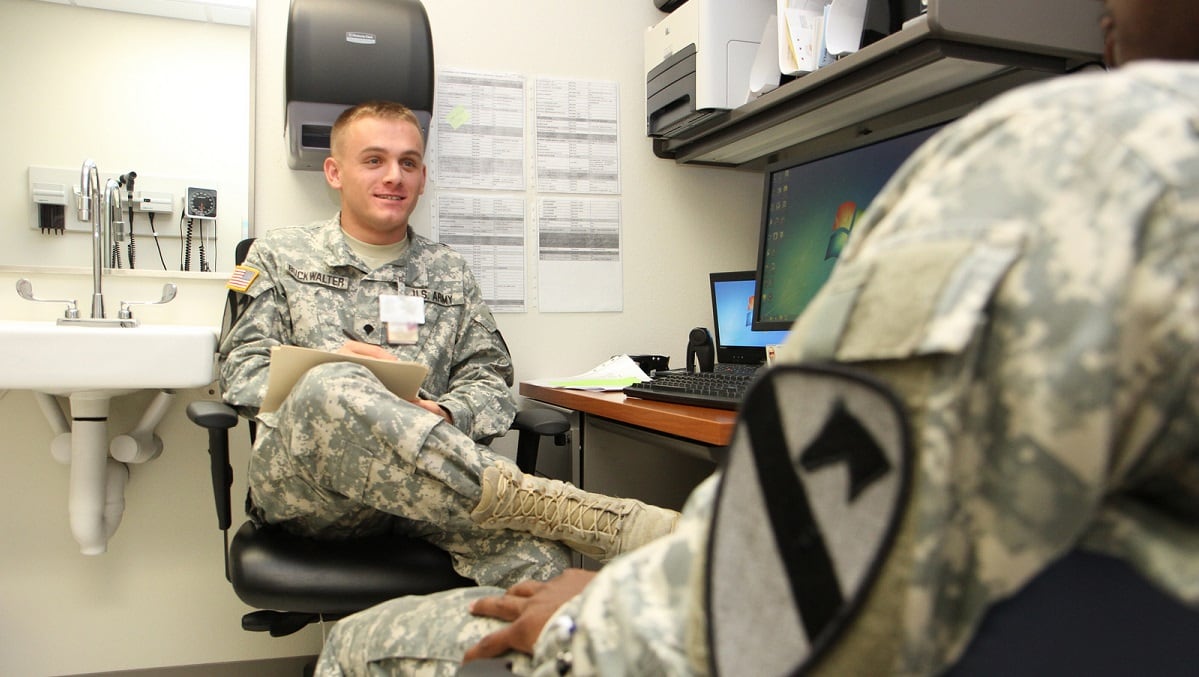Embedding mental health professionals within military units is producing some good results as troops have easier access to the help they need, the services’ surgeons general told lawmakers.
The Army has seen a decrease of 41 percent in the inpatient admission rate for acute behavioral health issues “because we’ve been able to handle it at the local level, and intervene earlier” before crises happen, said Army Surgeon General Lt. Gen. Nadja West, testifying Thursday before the Senate Appropriations Committee’s defense panel.
The Army has been assigning behavioral health providers to operational units, and more soldiers are receiving care in an outpatient setting, instead of having to go to a hospital. That’s contributed to more visits to behavioral health, West said.
Overall use of behavioral health care increased from about 900,000 visits in fiscal 2007 to more than 2.25 million in fiscal 2017, she said.
“Not that there’s more pathology,” West noted. “People just feel more comfortable using this in their area.”
RELATED

About 25 percent of the Navy’s mental health workforce is now embedded in operational units “to provide the care and support and decrease the distance between the need and the provider, and reduce stigma,” said Navy Surgeon General Vice Adm. Forrest Faison III.
“That has actually borne fruit for us,” Faison said. “We’ve also increased our hiring of mental health providers.”
The Air National Guard has created director of psychological health positions at every wing, and the Air Force Reserve is doing the same, said Air Force Surgeon General Lt. Gen. Mark A. Ediger. These behavioral health providers are assigned full time to help service members get mental health support at any time during their service, he said.
Ediger said the directors of psychological health will facilitate the referral into the military system for care, if the mental health problem turns out to be service connected, and will also help arrange private-sector care, as required.
Access to mental health care “is a huge issue” for active-duty members as well as National Guardsmen and reservists returning from deployment who may lose access to DoD services, said Sen. Jon Tester, D-Mont.
“We owe it to these folks to make sure they have access,” Tester said.

Part of the problem is the shortage of mental health providers around the country.
“I come from Montana and there aren’t a lot of mental health providers out there, which is another challenge we have to deal with,” he said.
Faison said there are several ongoing initiatives, including help lines, designed to help people returning to such underserved areas.
“I agree with my colleagues this is an issue we really need to get after,” said West, the Army surgeon general. She noted that there are a number of opportunities in areas such as virtual health to get mental health services to Guard and reserve members.
“We’re going to make sure we tackle that issue and come up with a solution,” she said.
Sen. Patty Murray, D-Wash., said embeds in behavioral health is a critical issue, and since implementing embed programs for Guard and Reserve units, “soldiers and family members spend about 40 percent fewer days admitted to the hospital for inpatient care than they did five years ago.”
Karen has covered military families, quality of life and consumer issues for Military Times for more than 30 years, and is co-author of a chapter on media coverage of military families in the book "A Battle Plan for Supporting Military Families." She previously worked for newspapers in Guam, Norfolk, Jacksonville, Fla., and Athens, Ga.




